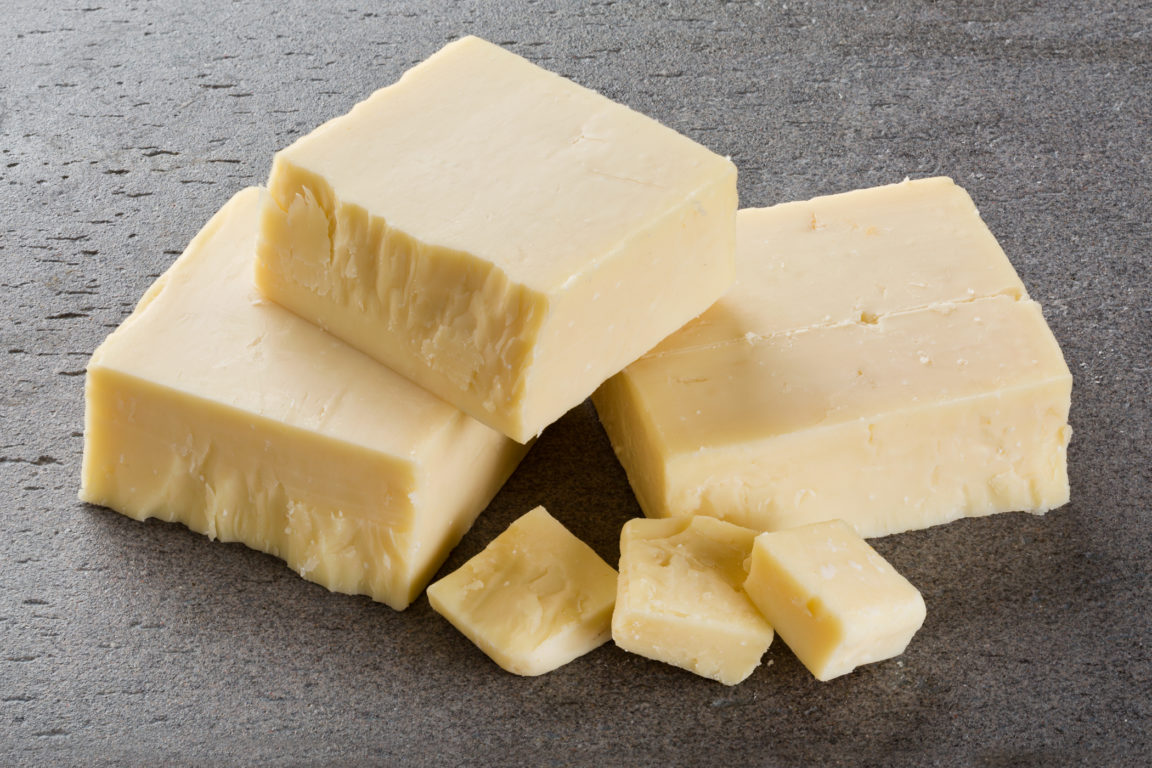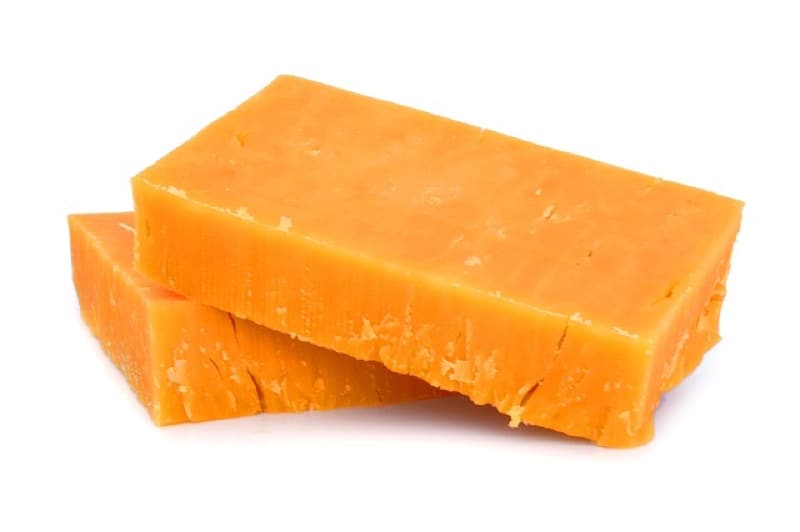Cheddar Cheese Good For You
Cheddar cheese good for you? It’s a question that often pops up, especially for cheese lovers who want to enjoy their favorite snack without guilt. While cheddar cheese is undeniably delicious, it’s also packed with nutrients that can contribute to a healthy lifestyle.
But before you dive into a block of cheddar, let’s explore the ins and outs of this popular cheese and its impact on your health.
From its nutritional value and potential heart health benefits to its role in weight management, we’ll delve into the world of cheddar cheese, uncovering its strengths and weaknesses. We’ll also address common concerns like lactose intolerance and how to incorporate cheddar cheese into a balanced diet.
So, whether you’re a cheese aficionado or simply curious about the nutritional profile of this iconic food, read on to discover the truth about cheddar cheese and its potential impact on your well-being.
Nutritional Value of Cheddar Cheese
Cheddar cheese, a beloved staple in many kitchens, offers a range of nutrients that contribute to overall health and well-being. This hard, yellow cheese, with its sharp and tangy flavor, is a nutritional powerhouse packed with essential vitamins, minerals, and macronutrients.
Macronutrient Composition

Cheddar cheese is a good source of protein, fat, and carbohydrates, making it a satisfying and energy-rich food. A typical serving (1 ounce) provides approximately:
- 7 grams of protein: Protein is essential for building and repairing tissues, producing enzymes and hormones, and maintaining a healthy immune system.
- 9 grams of fat: While cheddar cheese is high in fat, it’s important to note that a significant portion of this fat is saturated. However, it also contains healthy monounsaturated and polyunsaturated fats.
- 1 gram of carbohydrates: Cheddar cheese is relatively low in carbohydrates, making it a suitable choice for those following low-carb diets.
Vitamins and Minerals
Cheddar cheese is an excellent source of several vitamins and minerals, including:
- Calcium: Cheddar cheese is a rich source of calcium, which is crucial for strong bones and teeth, muscle function, and nerve transmission.
- Vitamin B12: This vitamin plays a vital role in red blood cell formation, DNA synthesis, and nerve function. Cheddar cheese provides a good amount of vitamin B12, which is particularly important for vegetarians and vegans.
- Riboflavin (Vitamin B2): Riboflavin is involved in energy production, cell growth, and the maintenance of healthy skin and eyes. Cheddar cheese is a good source of this essential vitamin.
- Phosphorus: This mineral is essential for bone health, energy production, and cell signaling.
- Zinc: Zinc is involved in immune function, wound healing, and cell growth.
Health Benefits
The nutrients found in cheddar cheese offer a range of potential health benefits, including:
- Bone Health: The high calcium content in cheddar cheese supports bone health and may reduce the risk of osteoporosis.
- Immune Function: Cheddar cheese’s zinc content plays a vital role in immune function, helping to protect against infections and diseases.
- Energy Production: The riboflavin and phosphorus in cheddar cheese contribute to energy production, providing the body with the fuel it needs to function properly.
Cheddar Cheese and Heart Health
The impact of cheddar cheese on heart health is a complex issue, as it contains both beneficial and potentially detrimental components.
Saturated Fat and Cholesterol
Cheddar cheese is relatively high in saturated fat, which can raise LDL (bad) cholesterol levels. High LDL cholesterol levels are linked to an increased risk of heart disease. However, cheddar cheese also contains monounsaturated and polyunsaturated fats, which can help lower LDL cholesterol and raise HDL (good) cholesterol levels.
Potential Benefits

Despite its saturated fat content, moderate cheddar cheese consumption may offer some benefits for heart health. Studies suggest that cheese, including cheddar, can contribute to healthy blood pressure and cholesterol levels. This is likely due to the presence of conjugated linoleic acid (CLA), a fatty acid found in dairy products, which has been linked to improved heart health.
Different Types of Cheddar
The aging process of cheddar cheese can affect its nutritional profile and potential impact on heart health. Aged cheddar, for example, tends to have a higher fat content and a more intense flavor. However, the specific effects of aged cheddar on heart health are not fully understood and require further research.
Cheddar Cheese and Weight Management: Cheddar Cheese Good For You
Cheddar cheese, with its relatively high calorie and fat content, can pose challenges for weight management. However, it can be incorporated into a balanced diet as part of a healthy weight management plan.
Calorie Content
A single ounce of cheddar cheese contains approximately 113 calories. While this may not seem excessive, consuming large quantities of cheddar cheese can quickly contribute to calorie intake and potentially lead to weight gain.
Role in a Balanced Diet
Cheddar cheese can be a part of a balanced diet for weight maintenance or weight loss, but moderation is key. When incorporating cheddar cheese into your diet, consider portion sizes and choose leaner protein sources and whole grains to balance out the fat and calories.
Practical Tips
Here are some practical tips for incorporating cheddar cheese into a healthy weight management plan:
- Portion control: Stick to a serving size of 1 ounce or less.
- Choose low-fat options: Opt for reduced-fat or part-skim cheddar cheese.
- Pair with healthy foods: Combine cheddar cheese with fruits, vegetables, or whole grains to create balanced and satisfying meals and snacks.
- Limit frequency: Enjoy cheddar cheese occasionally rather than as a daily staple.
Cheddar Cheese and Other Health Considerations
While cheddar cheese offers numerous nutritional benefits, it’s important to be aware of potential allergies, sensitivities, and health considerations.
Allergies and Sensitivities
Some individuals may have allergies or sensitivities to cheddar cheese, particularly those with lactose intolerance. Lactose intolerance is a condition in which the body has difficulty digesting lactose, a sugar found in dairy products. Symptoms of lactose intolerance can include bloating, gas, diarrhea, and abdominal cramps.
Health Conditions
Individuals with specific health conditions, such as high blood pressure or diabetes, should consult with a healthcare professional before consuming cheddar cheese. High blood pressure may be affected by the sodium content in cheddar cheese, while those with diabetes need to be mindful of the carbohydrate and fat content.
Excessive Consumption

Excessive cheddar cheese consumption can lead to several potential drawbacks, including:
- High saturated fat intake: High saturated fat intake can increase the risk of heart disease.
- Sodium intake: Cheddar cheese is relatively high in sodium, which can contribute to high blood pressure.
- Calorie overload: Excessive cheddar cheese consumption can contribute to weight gain.
Cheddar Cheese in a Balanced Diet
Cheddar cheese can be a delicious and nutritious addition to a balanced diet, providing essential nutrients and contributing to a variety of culinary creations.
Sample Meal Plan
Here’s a sample meal plan incorporating cheddar cheese in a balanced and healthy diet:
| Meal | Recipe | Ingredients |
|---|---|---|
| Breakfast | Cheddar and Spinach Omelet | 2 eggs, 1/4 cup spinach, 1/2 ounce cheddar cheese, 1 slice whole-wheat toast |
| Lunch | Grilled Chicken Salad with Cheddar Cheese | 4 ounces grilled chicken breast, 1 cup mixed greens, 1/4 cup diced tomatoes, 1/4 cup cucumbers, 1/4 cup shredded cheddar cheese, 2 tablespoons light vinaigrette dressing |
| Dinner | Cheddar and Broccoli Quiche | 1 cup broccoli florets, 1/2 cup shredded cheddar cheese, 4 eggs, 1/2 cup milk, 1/4 cup flour, 1/4 teaspoon salt, 1/8 teaspoon black pepper |
| Snack | Apple Slices with Cheddar Cheese | 1 apple, sliced, 1/4 ounce cheddar cheese |
Incorporating Cheddar Cheese
Cheddar cheese can be incorporated into various meals and snacks, adding flavor and nutritional value:
- Breakfast: Add shredded cheddar cheese to omelets, frittatas, or scrambled eggs.
- Lunch: Enjoy cheddar cheese in salads, sandwiches, or wraps.
- Dinner: Use cheddar cheese in casseroles, pasta dishes, or as a topping for baked potatoes.
- Snacks: Pair cheddar cheese with crackers, fruits, or vegetables for a satisfying snack.
Recipes
Here are some creative and healthy recipes featuring cheddar cheese as a key ingredient:
- Cheddar and Broccoli Soup: A creamy and comforting soup with broccoli florets, cheddar cheese, and a touch of milk or cream.
- Cheddar and Apple Quesadillas: A simple and flavorful quesadilla with cheddar cheese, thinly sliced apples, and a sprinkle of cinnamon.
- Cheddar and Zucchini Fritters: Crispy and flavorful fritters made with grated zucchini, shredded cheddar cheese, and a light batter.
Cheddar Cheese: A Culinary Delight
Cheddar cheese, with its distinctive flavor and versatility, has captivated palates worldwide. Its rich history and unique characteristics make it a culinary treasure.
Flavor Profile
Cheddar cheese is known for its sharp, tangy, and slightly salty flavor. The intensity of the flavor can vary depending on the aging process, with older cheddar cheeses having a more pronounced and complex taste.
Aging Process

The aging process significantly influences the taste and texture of cheddar cheese. During aging, the cheese undergoes a series of chemical changes that develop its flavor and create its characteristic crumbly texture. Younger cheddar cheeses have a milder flavor and a smoother texture, while aged cheddar cheeses are sharper, more intense, and crumbly.
Cultural Significance, Cheddar cheese good for you
Cheddar cheese has a rich history and cultural significance. It originated in the village of Cheddar in Somerset, England, and has been a staple in British cuisine for centuries. Today, cheddar cheese is enjoyed worldwide and is a key ingredient in countless dishes and recipes.
Outcome Summary
Cheddar cheese, with its rich flavor and nutritional profile, can be a delicious and healthy addition to your diet when consumed in moderation. By understanding its potential benefits and risks, you can make informed choices about incorporating this cheese into your meals.
Remember, a balanced diet is key, and cheddar cheese can play a delightful role in achieving your health goals.




Post a Comment for "Cheddar Cheese Good For You"